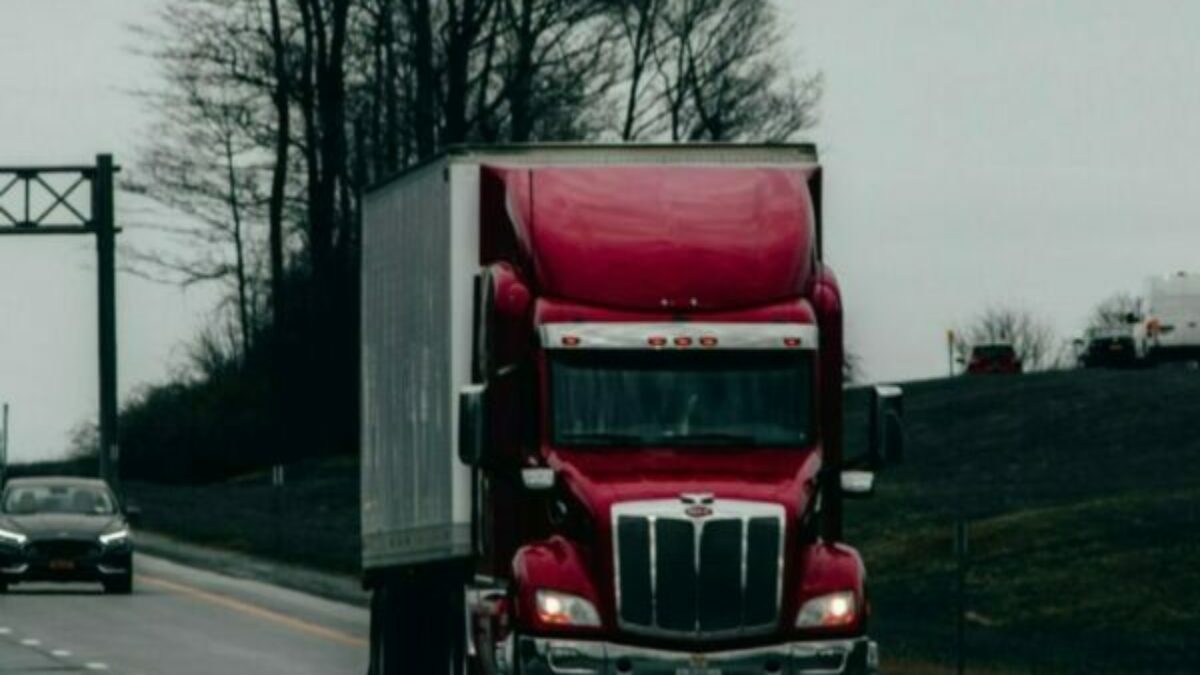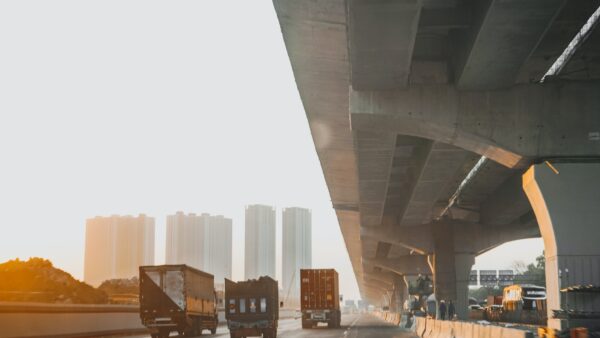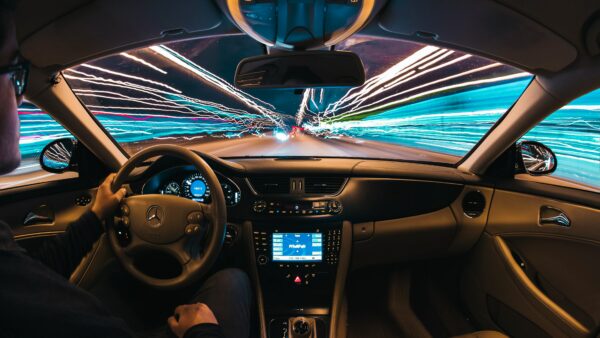
Bridges in the United States are impacted (struck and damaged) on average 15,000 times per year, according to the National Highway Traffic Safety Administration (NHTSA).
Although causes such as human error and weather events are consistently involved in bridge collisions, there are safety gaps in vehicle technology and building transportation infrastructure that could detect and prevent these harmful events from occurring so often.
Continue reading to learn more about the causes of bridge collisions, best practices to prevent them from occurring, and technology that carmakers can adopt to detect and mitigate possible collisions.

Road bridge (photo by Unsplash)
What are the Top Causes of Vehicle Bridge Collisions?
Human error
- Distracted driving, such as using a phone or adjusting the radio
- Fatigue or falling asleep at the wheel
- Impaired driving, such as driving under the influence of drugs or alcohol
- Reckless driving, such as speeding or weaving in and out of traffic
- Inexperience, such as new or young drivers who may not have the skills to navigate safely
Weather conditions
- Wet or icy road surfaces that reduce traction
- Heavy rain or snow that can reduce visibility
- Strong winds that can push vehicles off course
- Fog or mist that can obscure vision
Vehicle malfunction
- Brake failure or malfunction
- Steering or suspension issues
- Tire blowouts or other tire-related problems
- Electrical failures, such as lights or turn signals not working
Lack of road signs and markings
- Missing or unclear signage indicating lane changes, curves, or speed limits
- Inadequate lighting can make it difficult to see road markings or signs
- Poorly designed roads that are difficult to navigate

Trucks next to a tall bridge (photo by Indira Tjokorda on Unsplash)
Layers of Impact Due to Vehicle Bridge Collisions
When a vehicle collides with a bridge, it is not only the bridge or the vehicle that is negatively impacted but the driver, too. For example, post-collision emotional trauma that the driver and their loved one’s experience can be long-lasting, and the bridge repairs can be costly and disruptive to ongoing traffic for days on end.
Other layers of impact from bridge collisions include:
- Structural damage caused by collisions
- Cost of repairs and impact on bridge maintenance
- Potential long-term road/bridge closures
- Financial impact on the involved individuals and surrounding businesses
- Costs associated with emergency services and hospital care
- Effect on tourism and local economy
Who are Most at Risk of Vehicle Bridge Collisions?
The following types of individuals are most at risk of encountering a bridge collision:
- Drivers of large vehicles
- Drivers who are unfamiliar with the area
- Drivers who are inexperienced or reckless
- Pedestrians and cyclists

Tall bus in London (photo by Sam van Bussel on Unsplash)
When and Where Do Vehicle Bridge Collisions Most Often Occur?
When
- Peak traffic hours
- During inclement weather
- During special events
- During construction and maintenance work
Where
- Urban areas
- Rural areas
- Specific bridges with a history of accidents
- Bridges with challenging design

Driving into the future (photo by Samuele Errico Piccarini on Unsplash)
Take the Necessary Steps to Avoid Vehicle Bridge Collisions
- Observe speed limits and road signs
- Maintain a safe distance between vehicles
- Follow weather conditions
- Ensure proper vehicle maintenance
- Exercise caution during construction and maintenance work
Detect and Prevent Bridge Collisions with Innoviz’s LiDAR Technology
Light Detection and Ranging, also known as LiDAR, is a transformative sensor technology that measures and develops a 3D image of a vehicle’s surroundings in order to help detect unforeseen objects and structural differences in the vehicle’s environment. LiDAR sensors, such as InnovizOne and InnovizTwo, and perception software by Innoviz Technologies enable superior object detection, classification, and tracking with unrivaled angular resolution.
Bridge Collision Detector
The Bridge Collision Detector by Innoviz is the game-changing solution needed to detect, prevent and mitigate all kinds of vehicle bridge collisions without sacrificing capabilities during harsh weather conditions or low lighting.
Our collision detection software provides vehicle safety and performance features such as:
- Plug and Play with LiDAR Sensors
- Capable of defining the size of the triggered area
- Detection range of 1m-250m
- Field of view(FOV) of 120 degrees by 24 degrees